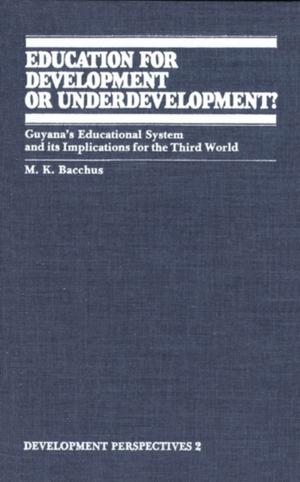The Global Food Crisis
Governance Challenges and Opportunities
Nonfiction, Social & Cultural Studies, Political Science, Government, Social Policy, International, International Relations| Author: | ISBN: | 9781554582754 | |
| Publisher: | Wilfrid Laurier University Press | Publication: | September 30, 2009 |
| Imprint: | Wilfrid Laurier University Press | Language: | English |
| Author: | |
| ISBN: | 9781554582754 |
| Publisher: | Wilfrid Laurier University Press |
| Publication: | September 30, 2009 |
| Imprint: | Wilfrid Laurier University Press |
| Language: | English |
The global food crisis is a stark reminder of the fragility of the global food system. The Global Food Crisis: Governance Challenges and Opportunities captures the debate about how to go forward and examines the implications of the crisis for food security in the world’s poorest countries, both for the global environment and for the global rules and institutions that govern food and agriculture.
In this volume, policy-makers and scholars assess the causes and consequences of the most recent food price volatility and examine the associated governance challenges and opportunities, including short-term emergency responses, the ecological dimensions of the crisis, and the longer-term goal of building sustainable global food systems. The recommendations include vastly increasing public investment in small-farm agriculture; reforming global food aid and food research institutions; establishing fairer international agricultural trade rules; promoting sustainable agricultural methods; placing agriculture higher on the post-Kyoto climate change agenda; revamping biofuel policies; and enhancing international agricultural policy-making.
Co-published with the Centre for International Governance Innovation
The global food crisis is a stark reminder of the fragility of the global food system. The Global Food Crisis: Governance Challenges and Opportunities captures the debate about how to go forward and examines the implications of the crisis for food security in the world’s poorest countries, both for the global environment and for the global rules and institutions that govern food and agriculture.
In this volume, policy-makers and scholars assess the causes and consequences of the most recent food price volatility and examine the associated governance challenges and opportunities, including short-term emergency responses, the ecological dimensions of the crisis, and the longer-term goal of building sustainable global food systems. The recommendations include vastly increasing public investment in small-farm agriculture; reforming global food aid and food research institutions; establishing fairer international agricultural trade rules; promoting sustainable agricultural methods; placing agriculture higher on the post-Kyoto climate change agenda; revamping biofuel policies; and enhancing international agricultural policy-making.
Co-published with the Centre for International Governance Innovation















